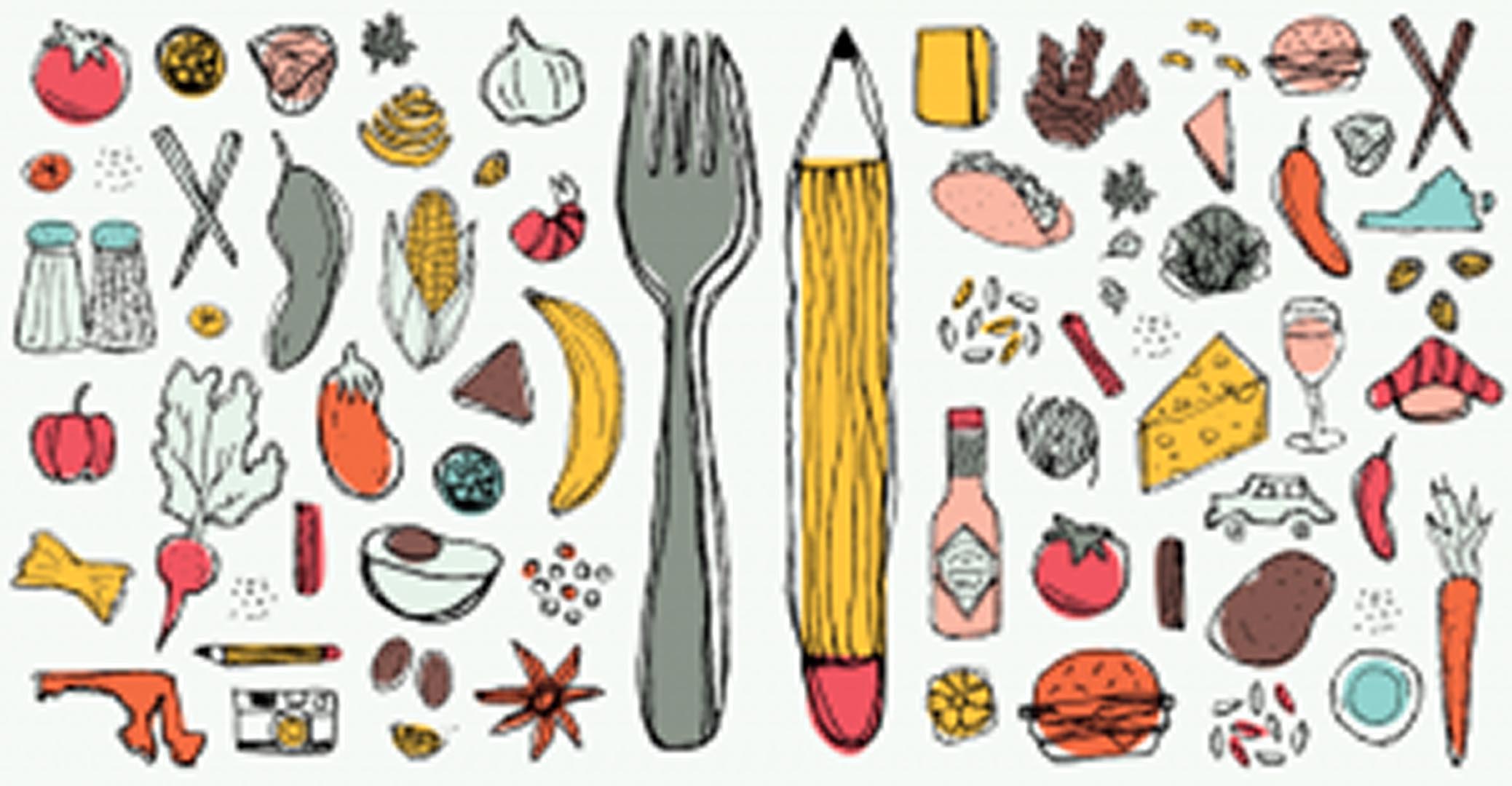Words To Savor
January 15, 2016

Alum pushes the boundaries of food criticism.
By Karen Shih '09, Terp Magazine
Illustration by Kelsey Marotta '14
“Do you taste that bitterness?” asks Todd Kliman ’91.
Somewhere in the lightly seared tuna, avocado cream and crunchy coleslaw-like topping, I can almost detect what he’s talking about. But at 10 p.m. on a drizzly Monday, after we’ve spent hours being turned away from one overcrowded D.C. bar after another, it’s easier for me to just chew, nod and be grateful for something delicious in this tiny Filipino restaurant.
And so it goes throughout the meal at Bad Saint in Columbia Heights, as he declares there’s no dried shrimp in a rice noodle dish (prompted by an inquiry for a vegetarian friend) and that the best way to eat the clams with Chinese sausage and black beans is to pluck them from their overstuffed shells and taste them with a spoonful of broth, where all the briny juices have pooled.
At one point, the cheery waitress brings over light pink prawn crackers with homemade XO sauce. “A gift from the chef,” she says.
“That’s probably a sign I’ve been recognized,” says the Washingtonian food critic once she leaves.
A lesser critic might be concerned about a restaurant’s efforts to control his experience. But Kliman’s writing goes beyond just the particulars of each dish (though Chef Michel Richard once told him that with his palate, it was a shame he wasn’t a chef) or the service he receives. He’s more focused on the tide that’s ushered in this Brooklyn-esque, two-dozen-seat, no-reservations joint and the history—or lack thereof—of authentic Filipino food in the D.C. metro area.
You can’t find that on Twitter, Yelp and blogs, where analysis from restaurant-goers typically goes no deeper than complaints about cold bread, a waiter’s use of “guys” or a salty pork chop.
Kliman prefers to contemplate the big picture. He may ruminate on persistent, silent segregation in the restaurant industry in an Oxford American essay, selected for the “Best Food Writing 2015” anthology; the challenges of opening a restaurant that caters to both old and new residents in a gentrifying neighborhood in his new column, “OtherWise”; or the right or wrong way to eat unfamiliar Ethiopian cuisine, in his weekly online chat with readers.
“Food has changed. Products have changed. People have educated themselves about food, making food a bigger part of their lives,” he says. “If you want to know about the mere existence of a new restaurant or what to get, you don’t need what I do. I would like to think that there are ways to write about food that can help people understand the time they’re living in.”
WRITE OF PASSAGE
It’s a little strange to imagine the erudite Kliman, who peppers his conversations with references to Philip Roth and Stanley Whitney, covering youth sports for a modest Prince George’s County paper as a 15-year-old.
But “writing was all I wanted to do,” says Kliman.
After graduating from Eleanor Roosevelt High School in Greenbelt, Kliman didn’t go straight to college. He instead wrote for the Washington Weekly (then D.C.’s version of The Village Voice), went on a months-long cross-country road trip and served as a news aide at The Washington Post before enrolling at UMD two years after his peers.
“Money was always a struggle,” he says, since his dad was an artist and his mom wrote instruction manuals. So he paid his own way.
Instead of taking a shift at the local Dairy Queen, he parlayed his clips into new assignments for national magazines, penning pieces on topics ranging from bullfighting in the Southwest to the melodrama of senior year in high school (he went back, “21 Jump Street”-style).
In the classroom, English professors Jack Russell, Michael Olmert and Don Kleine taught him to appreciate novels that defied classification, as well as the nuances of language and structure, and to embrace an unorthodox writing style.
Read more here.

